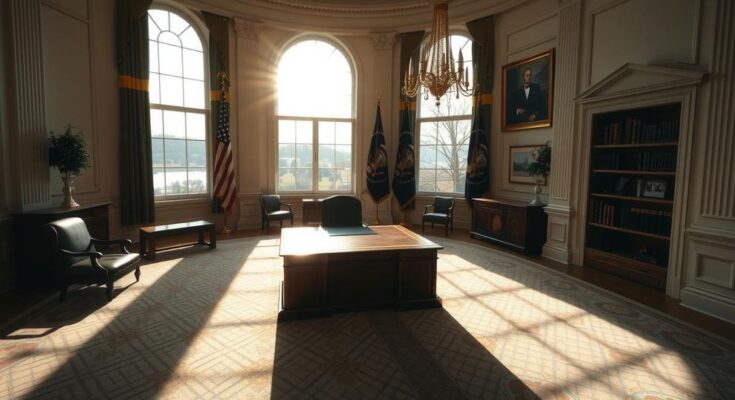Guinea-Bissau’s President Umaro Sissoco Embalo is running for a second term, contradicting a previous pledge to step down. His announcement comes amid political tension and election delays, with the opposition claiming his term ended in February, while the Supreme Court ruled it continues until September. The situation poses significant uncertainty as the nation navigates its coup-prone history.
President Umaro Sissoco Embalo of Guinea-Bissau has announced his candidacy for a second term in the upcoming November elections, despite previously pledging to step down. This decision has intensified existing tensions regarding the electoral process within the nation, which is historically prone to coups and instability. Following recent diplomatic visits to Russia, Azerbaijan, and Hungary, Embalo has declared his intention to continue in office, complicating the political landscape further.
The opposition has argued that President Embalo’s term officially concluded in February. However, the Supreme Court of Justice has ruled that his mandate is valid until September, which adds to the current political strife. Moreover, there is rising discontent over his choice to delay both legislative and presidential elections until November 30, a year beyond their original schedule, which he attributes to “technical and financial constraints.”
Having survived two alleged coup attempts, including one in December 2023, the former army general is now poised for a significant electoral struggle. It remains uncertain whether the political opposition in Guinea-Bissau will accept his ongoing hold on power or confront his extended reign. This situation signals a crucial juncture for a nation that has long grappled with governance and stability issues.
In summary, President Umaro Sissoco Embalo’s announcement to seek a second term contradicts his previous commitment to vacate office, heightening tensions in Guinea-Bissau’s unstable political climate. The Supreme Court’s ruling regarding his mandate extension and the decision to postpone elections further complicate this landscape. Questions linger about the opposition’s response to his bid for re-election and the future of governance in this historically tumultuous nation.
Original Source: www.gamereactor.eu




